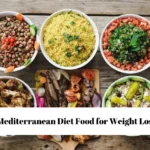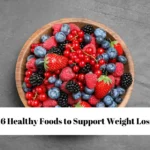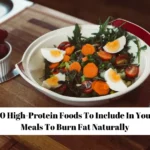As we age, the desire to maintain youthful vitality becomes increasingly important. While genetics play a significant role in how we age, our dietary choices can have a profound impact on our overall health and appearance. Many people are unaware that certain foods can accelerate the aging process, leading to premature wrinkles, dull skin, and chronic health issues.
In this article, we will explore 18 foods that could be making you age faster, delving into how these common items can affect your body and skin. By understanding the effects of these foods, you can make more informed dietary choices that promote longevity and youthful vitality, ensuring you look and feel your best at any age. Let’s uncover the hidden culprits that may be speeding up the aging process and discover healthier alternatives to nourish your body and support your skin.
1. Sugar-Sweetened Beverages
Sugar-sweetened beverages, including sodas and energy drinks, are laden with added sugars and offer little to no nutritional value. Consuming these drinks regularly can lead to a range of health issues, including obesity, diabetes, and heart disease, all of which are linked to accelerated aging. High sugar intake can contribute to inflammation in the body, which is a significant factor in the aging process. Additionally, the glycemic index of sugary drinks can spike insulin levels, leading to insulin resistance over time. This spike can also result in the formation of advanced glycation end products (AGEs), which are compounds that damage collagen and elastin, the proteins responsible for maintaining skin elasticity and firmness. As these proteins break down, it can lead to premature wrinkles, sagging skin, and an overall aged appearance.
Moreover, sugary drinks can lead to weight gain, particularly around the abdomen, which can further impact physical health and appearance. Increased body fat, especially visceral fat, is associated with higher levels of inflammation and oxidative stress, both of which accelerate the aging process. The impact on skin health is profound; excessive sugar consumption is linked to acne, dullness, and a reduction in skin’s natural glow. By replacing these sugary beverages with water, herbal teas, or other low-calorie alternatives, one can help mitigate these aging effects, promoting better hydration and overall health. This simple change can improve skin clarity and reduce the risk of chronic diseases, contributing to a more youthful appearance over time.
2. Processed Meats
Processed meats, including bacon, hot dogs, and deli meats, are often preserved through methods such as smoking, curing, or adding preservatives. These meats typically contain high levels of sodium and preservatives like nitrates and nitrites, which can contribute to increased blood pressure, heart disease, and even certain cancers. The consumption of processed meats has been linked to increased oxidative stress and inflammation in the body, both of which are known factors in the aging process. The presence of these harmful compounds can accelerate cellular damage, contributing to premature aging at the cellular level. Furthermore, the body may struggle to break down these additives, leading to increased toxicity and stress on various organs, particularly the liver.
Additionally, the unhealthy fats found in processed meats can contribute to poor cardiovascular health. An unhealthy heart can lead to a range of complications, including reduced blood flow to the skin, which can further age the appearance by making it look dull and lifeless. There is also evidence suggesting that diets high in processed meats can lead to an imbalance of gut microbiota, which has implications for overall health and longevity. A disrupted gut microbiome can exacerbate inflammation and negatively impact nutrient absorption, leading to deficiencies that can affect skin health and vitality. Reducing processed meat intake and opting for lean, unprocessed protein sources can not only benefit overall health but also support a more youthful appearance.
3. Refined Carbohydrates
Refined carbohydrates, commonly found in white bread, pastries, and many processed snacks, can have a detrimental impact on aging. These carbohydrates are stripped of their natural fiber and nutrients during processing, leading to quick spikes in blood sugar levels. Such spikes can result in increased insulin production, which over time can lead to insulin resistance—a significant risk factor for various metabolic disorders. This cycle of high blood sugar and insulin can lead to chronic inflammation, which is a key player in the aging process. Inflammation can accelerate the breakdown of collagen and elastin in the skin, leading to wrinkles and sagging.
Moreover, refined carbs have been shown to contribute to weight gain, particularly abdominal fat. Increased body fat, especially around the midsection, is linked to numerous health issues, including heart disease and diabetes, which can all contribute to a faster aging process. Additionally, the lack of fiber in refined carbohydrates means they provide less satiety, leading to overeating and weight gain. The energy fluctuations that come from consuming refined carbs can also leave individuals feeling fatigued and sluggish, which can affect physical appearance and vitality. To combat these effects, it’s beneficial to choose whole grains and high-fiber foods, which not only help stabilize blood sugar levels but also promote overall health and longevity.
4. Fried Foods
Fried foods, including French fries, fried chicken, and doughnuts, are high in unhealthy fats and calories. The process of frying food often creates harmful compounds, such as acrylamide, which is formed when certain foods are cooked at high temperatures. These compounds have been linked to oxidative stress and inflammation, both of which can accelerate the aging process at the cellular level. Additionally, the unhealthy fats found in fried foods can lead to weight gain and contribute to heart disease, further impacting overall health and appearance. Over time, a diet high in fried foods can compromise skin health, leading to issues such as acne, dullness, and an overall tired appearance.
The consumption of fried foods can also negatively impact the body’s ability to detoxify effectively. When the liver is overloaded with unhealthy fats and toxins from fried foods, it can lead to skin issues, such as blemishes and an uneven complexion. Furthermore, the inflammatory responses triggered by fried food consumption can lead to skin aging, manifesting as wrinkles and sagging. This is particularly concerning for individuals looking to maintain a youthful appearance, as the skin is often one of the first areas to show signs of aging. To promote healthier skin and overall vitality, opting for baked, grilled, or steamed alternatives instead of fried foods can make a significant difference in aging and health.
5. Alcohol
Excessive alcohol consumption can have profound effects on the aging process, both internally and externally. While moderate drinking may have some health benefits, heavy drinking is linked to a variety of health issues, including liver disease, cardiovascular problems, and a weakened immune system. Alcohol can also lead to dehydration, which can cause the skin to lose its elasticity and appear more wrinkled and aged. Additionally, alcohol consumption can increase inflammation in the body, further contributing to the breakdown of collagen and elastin—key components that help maintain youthful, supple skin. Chronic alcohol consumption can also lead to nutrient deficiencies, particularly of vitamins A, C, and E, which are crucial for skin health.
Furthermore, the effects of alcohol can extend to sleep quality. Poor sleep, often exacerbated by alcohol consumption, can lead to a host of problems, including dark circles, puffiness, and a lackluster complexion. Additionally, alcohol can disrupt the body’s natural detoxification processes, leading to an accumulation of toxins that can manifest as skin blemishes and an aged appearance. Individuals may also notice an increase in redness and uneven skin tone, as alcohol can cause blood vessels to dilate. To mitigate these effects, it’s important to consume alcohol in moderation and prioritize hydration and nutrient-rich foods that support overall skin health.
6. Trans Fats
Trans fats, often found in partially hydrogenated oils and many processed foods, are notorious for their adverse health effects. These unhealthy fats can raise LDL (bad) cholesterol levels while simultaneously lowering HDL (good) cholesterol levels, leading to an increased risk of heart disease. The consumption of trans fats is also linked to increased inflammation throughout the body, which accelerates the aging process. Inflammation can lead to cellular damage and is a significant contributor to chronic diseases and aging. This type of fat can also affect the skin’s appearance, making it look dull and contributing to the formation of wrinkles.
Additionally, trans fats can impact insulin sensitivity, contributing to weight gain and obesity—factors that further exacerbate aging. Increased body fat, particularly around the abdomen, is associated with numerous health problems that can contribute to a more aged appearance. Research has also suggested that diets high in trans fats can disrupt the balance of hormones, which can negatively impact skin health and elasticity. To promote better health and a more youthful appearance, it’s essential to avoid trans fats by steering clear of processed and fried foods and opting for healthier fat sources, such as avocados, nuts, and olive oil.
7. High-Sodium Foods
High-sodium foods, commonly found in processed snacks, canned soups, and fast food, can lead to a range of health issues, particularly concerning heart health. Excess sodium intake is linked to high blood pressure, which can strain the cardiovascular system and lead to various complications. High blood pressure can also restrict blood flow to the skin, resulting in a dull complexion and contributing to an aged appearance. Moreover, excess sodium can lead to water retention, causing puffiness, particularly in the face, and exacerbating the appearance of fine lines and wrinkles. The retention of water can make the skin look bloated, further adding to an aged look.
Additionally, high sodium levels can lead to an imbalance of essential nutrients, as sodium often competes with potassium. This imbalance can affect various bodily functions, including muscle contraction and nerve signaling, impacting overall health and vitality. Furthermore, diets high in sodium are often low in fruits and vegetables, which are rich in antioxidants and essential nutrients that help combat the aging process. Reducing sodium intake and replacing high-sodium foods with fresh, whole foods can help promote better health and a more youthful appearance, as these alternatives are often packed with nutrients that support skin health and overall well-being.
8. White Flour Products
Products made from white flour, such as white bread, pastries, and many pasta varieties, have undergone significant processing that strips them of essential nutrients and fiber. This refining process results in foods that can cause rapid spikes in blood sugar levels, leading to increased insulin production and, over time, insulin resistance. This cycle can contribute to chronic inflammation, a significant contributor to the aging process. Inflammation can break down collagen and elastin, two proteins vital for maintaining youthful, healthy skin. Regular consumption of white flour products can also lead to weight gain, particularly around the midsection, which is associated with various health issues and can contribute to an aged appearance.
Furthermore, white flour products often lack the vitamins and minerals found in whole grain alternatives, which are essential for overall health and skin vitality. Nutrient deficiencies can lead to a variety of skin problems, including dryness, dullness, and an increased risk of acne. A diet high in refined carbohydrates can also negatively impact gut health, leading to a disrupted microbiome that can exacerbate inflammation and negatively affect skin health. To combat these effects, it is beneficial to replace white flour products with whole grains and fiber-rich foods, which not only stabilize blood sugar levels but also support skin health and overall longevity.
9. Artificial Sweeteners
Artificial sweeteners, often found in diet sodas and sugar-free products, are designed to replace sugar while offering fewer calories. However, their long-term effects on health are still being studied. Some research suggests that these sweeteners can disrupt gut microbiota, leading to imbalances that can cause inflammation and metabolic issues. Inflammation is a well-known factor in the aging process, as it can contribute to cellular damage and accelerate the deterioration of skin health. Additionally, artificial sweeteners may lead to cravings for sweet foods, encouraging individuals to consume more unhealthy foods, which can ultimately contribute to weight gain and associated health issues.
Furthermore, artificial sweeteners have been linked to metabolic syndrome, a cluster of conditions that increase the risk of heart disease and diabetes. These health issues can impact overall vitality and lead to a more aged appearance. The consumption of artificially sweetened beverages can also lead to increased insulin resistance, further compounding these issues. By choosing natural sweeteners, such as honey or maple syrup, in moderation, individuals can reduce the potential negative impacts associated with artificial sweeteners while still satisfying their sweet cravings. Focusing on whole, nutrient-dense foods can also promote better overall health and a more youthful appearance.
10. Margarine
Margarine, often seen as a healthier alternative to butter, can actually contain harmful trans fats and additives that contribute to health issues. Many margarine brands are made with partially hydrogenated oils, which are high in trans fats linked to an increased risk of heart disease and inflammation. Inflammation plays a significant role in the aging process, contributing to the breakdown of collagen and elastin, vital for maintaining youthful skin. Moreover, margarine often lacks the nutrients found in natural fats, which can lead to deficiencies that negatively affect skin health. For instance, healthy fats are essential for maintaining skin hydration and elasticity, and without them, skin can become dry and more prone to wrinkles.
Additionally, the consumption of margarine has been associated with weight gain, particularly when used in excess or as a substitute for healthier fat sources. Increased body fat, especially around the midsection, is linked to various health issues that can contribute to an older appearance. To promote healthier skin and overall well-being, it is advisable to limit margarine intake and opt for healthier fat sources, such as olive oil, avocado, and nut butters. These alternatives not only provide essential fatty acids that support skin health but also contribute to overall health and longevity.
11. Canned Soups
Canned soups can be convenient meal options but often contain high levels of sodium and preservatives, which can lead to various health issues. The excessive sodium found in many canned soups can contribute to high blood pressure, which can have detrimental effects on cardiovascular health. Poor heart health can impact blood circulation, leading to a reduced flow of oxygen and nutrients to the skin, which can make it appear dull and aged. Moreover, the preservatives used in canned soups can promote inflammation in the body, further exacerbating the aging process by breaking down collagen and elastin.
Additionally, many canned soups lack fresh ingredients, which can contribute to a diet low in essential nutrients and antioxidants. Nutrient deficiencies can lead to various skin issues, such as dryness, dullness, and an increased risk of acne. To support skin health and overall vitality, it’s advisable to choose low-sodium or homemade soup options made from fresh ingredients. Incorporating a variety of fruits and vegetables into meals can also promote better skin health, providing essential nutrients that help combat the signs of aging.
12. Dairy Products
Dairy products, such as milk, cheese, and yogurt, can have varying effects on health, particularly for individuals with lactose intolerance or dairy allergies. For some, dairy can lead to inflammation, skin issues like acne, and bloating, all of which can contribute to an aged appearance. The hormones and antibiotics often found in conventional dairy products can disrupt hormonal balance, leading to skin problems and other health issues. Furthermore, dairy is often high in saturated fats, which can contribute to weight gain and related health problems. Increased body fat, particularly around the abdomen, is linked to numerous chronic conditions and can negatively impact overall health and appearance.
Additionally, some studies suggest that excessive dairy consumption may be associated with increased acne and other skin issues, as certain dairy products can stimulate oil production in the skin. This oiliness can lead to clogged pores and, ultimately, breakouts. To promote healthier skin and reduce the risk of aging, it may be beneficial to limit dairy intake and explore plant-based alternatives. Foods rich in antioxidants, vitamins, and healthy fats can help support skin health, providing the nutrients needed to combat the signs of aging effectively.
13. High-Fructose Corn Syrup
High-fructose corn syrup (HFCS) is a common sweetener found in many processed foods and beverages. It has been linked to various health issues, including obesity, diabetes, and fatty liver disease, all of which can contribute to accelerated aging. HFCS is metabolized differently than glucose, leading to increased fat production in the liver and higher levels of fat in the bloodstream. This metabolic disruption can lead to weight gain, particularly around the abdomen, which is associated with an increased risk of chronic diseases. Additionally, the consumption of HFCS can lead to increased inflammation in the body, which accelerates cellular aging and contributes to skin issues like wrinkles and sagging.
Furthermore, the high sugar content in HFCS can negatively impact skin health by promoting the formation of AGEs, which can damage collagen and elastin, vital proteins that maintain skin structure and elasticity. As these proteins break down, it can lead to premature wrinkles and a loss of skin firmness. To mitigate these effects, it is essential to reduce the intake of products containing HFCS and opt for natural sweeteners or whole foods instead. Emphasizing a diet rich in fruits, vegetables, and whole grains can provide essential nutrients that support skin health and overall vitality, contributing to a more youthful appearance.
14. Instant Noodles
Instant noodles are a convenient meal option but often lack essential nutrients and are high in unhealthy fats, sodium, and preservatives. The processing of instant noodles strips them of their natural nutrients, leading to a product that is often low in fiber, vitamins, and minerals. The high sodium content in instant noodles can contribute to elevated blood pressure, negatively impacting cardiovascular health and blood flow to the skin. Poor circulation can lead to a dull complexion and exacerbate the appearance of fine lines and wrinkles. Additionally, the unhealthy fats present in instant noodles can lead to weight gain and an increased risk of chronic diseases, both of which are linked to accelerated aging.
Moreover, the preservatives and additives found in many instant noodle brands can promote inflammation in the body, further contributing to cellular damage and aging. The lack of fresh ingredients in instant noodles means they often do not provide the antioxidants necessary for combating oxidative stress, which is a significant factor in the aging process. To promote better health and a youthful appearance, it is advisable to limit the intake of instant noodles and opt for whole, unprocessed foods. Preparing meals from fresh ingredients can provide essential nutrients that support overall health and skin vitality.
15. Energy Drinks
Energy drinks are popular for their ability to provide a quick boost of energy, but they often contain high levels of sugar and caffeine, which can have detrimental effects on health. The excessive sugar found in many energy drinks can lead to spikes in blood sugar and insulin levels, contributing to inflammation and weight gain. This weight gain, particularly around the midsection, is linked to various health issues that can accelerate the aging process. Additionally, high sugar consumption can lead to the formation of AGEs, which damage collagen and elastin, key components for maintaining youthful skin. Furthermore, the caffeine content in energy drinks can lead to dehydration, which can make the skin appear dull and exacerbate the formation of fine lines and wrinkles.
Moreover, the combination of high sugar and caffeine can lead to energy crashes, resulting in fatigue and a lack of motivation. This cycle can affect physical activity levels and overall vitality, further contributing to an aged appearance. Over time, excessive caffeine intake can also disrupt sleep patterns, leading to poor-quality sleep, which is vital for skin repair and rejuvenation. To promote better health and a more youthful appearance, it is advisable to limit energy drink consumption and explore healthier alternatives, such as herbal teas or natural juices, that provide energy without the negative side effects.
16. Potato Chips
Potato chips are a popular snack but are often high in unhealthy fats, sodium, and calories. The frying process used to make potato chips can produce harmful compounds, such as acrylamide, which is linked to oxidative stress and inflammation—both of which accelerate the aging process. Additionally, the high sodium content can contribute to elevated blood pressure and water retention, leading to a puffy appearance and exacerbating the formation of fine lines and wrinkles. The combination of unhealthy fats and high-calorie content can also lead to weight gain, which is associated with various health issues that contribute to an older appearance.
Furthermore, potato chips often lack essential nutrients and fiber, making them a poor choice for a healthy snack. The lack of nutrition can lead to deficiencies that negatively impact skin health and overall vitality. Frequent consumption of potato chips can also promote unhealthy eating habits, leading to an increased intake of processed foods that can exacerbate inflammation and accelerate aging. To support healthier skin and overall well-being, it is advisable to limit potato chip consumption and opt for healthier snack alternatives, such as air-popped popcorn, nuts, or fresh fruits and vegetables.
17. Snack Cakes
Snack cakes, including those sold individually or in multi-packs, are often high in sugar, unhealthy fats, and preservatives. These processed treats can lead to rapid spikes in blood sugar levels, contributing to inflammation and weight gain. Over time, the consumption of high-sugar foods can promote the formation of AGEs, which can damage collagen and elastin—vital proteins for maintaining skin elasticity and youthfulness. The unhealthy fats found in many snack cakes can also lead to poor cardiovascular health, impacting blood circulation and contributing to a dull complexion. This combination of factors can accelerate the aging process, resulting in wrinkles, sagging skin, and an overall aged appearance.
Additionally, the preservatives and additives found in snack cakes can promote inflammation in the body, further contributing to skin issues and cellular damage. The lack of essential nutrients in these processed treats can lead to nutrient deficiencies that negatively impact skin health and vitality. To promote better health and a youthful appearance, it is advisable to limit snack cake consumption and opt for healthier alternatives, such as homemade baked goods made with whole grains, natural sweeteners, and nutritious ingredients. Incorporating a variety of fruits and vegetables into the diet can also provide essential nutrients that support skin health and overall well-being.
18. Fast Food
Fast food is a convenient option but is often high in unhealthy fats, sodium, and calories, which can have detrimental effects on health. Regular consumption of fast food is linked to obesity, heart disease, diabetes, and other chronic conditions, all of which can accelerate the aging process. The unhealthy fats and high calorie content found in many fast-food items can lead to weight gain, particularly around the abdomen, which is associated with an increased risk of health issues. Additionally, the excessive sodium found in fast food can contribute to high blood pressure and water retention, leading to puffiness and exacerbating the appearance of fine lines and wrinkles.
Furthermore, fast food is often low in essential nutrients, lacking the vitamins and antioxidants needed to support skin health and combat oxidative stress. The processing of fast food items strips them of their natural nutrients, leading to a product that can contribute to poor skin health and an overall aged appearance. To promote better health and a youthful appearance, it is advisable to limit fast food consumption and prioritize whole, nutrient-dense foods. Preparing meals at home using fresh ingredients can provide essential nutrients that support overall well-being and contribute to a more youthful appearance.
Conclusion
In conclusion, being mindful of your dietary choices is crucial in the fight against premature aging. The 18 foods that could be making you age faster are not just harmful to your appearance but can also lead to chronic health issues. By eliminating or reducing these foods from your diet and opting for healthier alternatives, you can support your body’s natural aging process and enhance your skin’s vitality.
Prioritizing nutrient-rich foods can improve overall health and promote a youthful appearance, allowing you to embrace each decade with confidence and grace. Take charge of your health today and make informed choices that will benefit you in the long run.
FAQs
1. What foods should I avoid to prevent aging?
To prevent aging, it’s best to avoid processed meats, sugary beverages, fried foods, and refined carbohydrates, as these can contribute to inflammation and cellular damage.
2. How can I promote healthy aging through diet?
You can promote healthy aging by incorporating whole foods rich in antioxidants, such as fruits, vegetables, whole grains, and healthy fats, while reducing the intake of processed and sugary items.




